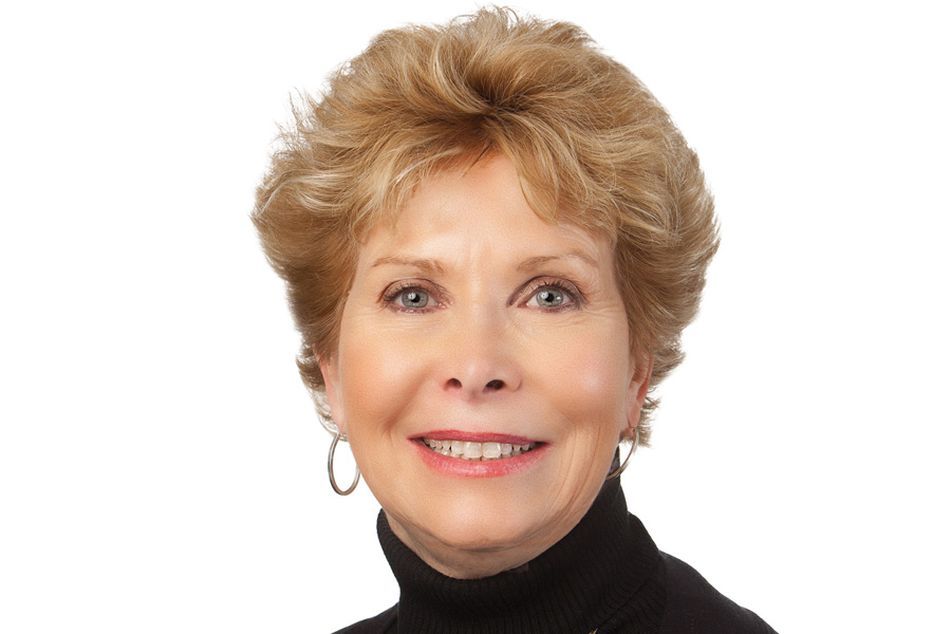An InvestmentNews salute to the ‘Notorious MBF’

InvestmentNews subscribers have been able to count on Mary Beth Franklin’s weekly column for intelligent and compassionate answers.
“The more you learn about Social Security, the more your clients will thank you.”
With these words of wisdom back on Jan. 16, 2012, Mary Beth Franklin introduced herself to InvestmentNews readers as the go-to source for retirement advice. Whether it be a financial adviser seeking a solution for a client about an investment security or an ordinary investor in search of emotional security prior to entering their so-called “golden years,” subscribers have been able to count on Mary Beth’s weekly column for intelligent and compassionate answers.
And for those needing more upfront and personal advice, Mary Beth has been a mainstay on the speaking circuit over the past decade, headlining our Retirement Income Summits and Women to Watch gatherings nationwide. In fact, her appearances draw so many adoring fans, we often refer to her in the office as “The Notorious MBF.”
Yes, Mary Beth is the closest thing to a retirement rock star there ever will be, and — to be clear— she’s not going away! She’s just stepping back a little, going from a weekly column to a monthly one. A promotion to Columnist Emeritus if you will.
Hey, she deserves it! After years of writing about retirement for everybody else’s pleasure, it’s time she started enjoying it herself. (Watch out, all you pickleball fanatics, MBF’s coming for you!)
So in honor of Mary Beth’s new role at InvestmentNews, we’d like to spin some of her greatest hits as a gift to both our readers and ourselves. Rock on, MBF!
WOMEN AND MONEY (Oct. 29, 2021)
“Because of women’s longer life expectancies and the likelihood that most women will spend their final years on their own as a result of being widowed or divorced or never having married, women need to stretch their nest eggs over increasingly longer retirements.
That would indicate the need to take more risk with their retirement portfolios in an effort to boost returns. Unfortunately, most female investors do the opposite. Almost 69% of women take average or below risk with their investment portfolios while over half of men take average or above average risk when investing, according to the J.P. Morgan study.
It’s time for a reality check. Women need to understand that being too cautious with their investments can be the greatest risk of all, particularly as the recent uptick in inflation underscores the need to take appropriate investment risks in order to protect future buying power.”
MBF’S LONG-TERM CARE ADVICE (July 27, 2022)
“Health care costs are one of the leading risks to a secure retirement, yet retirees tend to worry more about market risk than about outliving their money or facing expensive bills for medical and long-term care, according to a new report from the Center for Retirement Research at Boston College. The stock market’s rocky performance during the first half of 2022 has surely heightened those concerns about market risk.
But I was reminded of my personal long-term care risk — and the cost of protecting against it — when I received a notice recently of a premium hike for the LTC insurance policies that my husband and I bought 16 years ago, when we were in our 50s. This is the third round of premium increases since we purchased the policies in 2006.
Low interest rates that have hobbled insurers’ investment returns, increased longevity, and lower-than-expected lapse rates have all contributed to the repeated need to increase LTC premiums. But understanding the reasons behind a price hike doesn’t make it any easier to swallow. It’s time (again) to reassess our LTC policies and review our options.”
MARY BETH ON MARRIAGE, DIVORCE & MONEY (Feb. 16, 2022)
“With more than 2,700 rules, Social Security is certainly a challenging topic for many financial advisers who want to help their clients optimize their benefits. But when it comes to dealing with divorced clients and the various rules and exceptions that apply, some advisers simply raise the white flag of surrender and cry help!
No worries. I’m here to translate.
‘It always amazes me that I can understand the Social Security claiming strategies you outline in your column and even explain it to clients,’ one adviser from North Carolina wrote to me via email recently. ‘But then certain situations trip me up.’
Case in point: The adviser’s client is a divorced woman who turns 65 in May. Born in 1957, her full retirement age is 66 and 6 months. The client’s benefit amount at her full retirement age is a meager $780 per month. Her ex-husband, who’s 68, is currently collecting about $3,400 in Social Security retirement benefits.
‘My client was told by Social Security that she would be eligible for about $1,700 per month based on half of her ex-husband’s full retirement age benefit amount,’ the adviser wrote in an email. ‘But my question is, does she have to wait until her full retirement age to collect that amount?’
Yes, I replied. ‘If your divorced client waits until her full retirement age to claim Social Security, she will collect half of her ex’s FRA amount.’”
MBF ON MEDICARE (Sept. 4, 2022)
“Older clients increasingly need advice about their Medicare options, and a majority of financial advisers believe it’s their fiduciary obligation to provide that advice — if only they knew how.
As more than 60 million Americans prepare for this year’s Medicare open enrollment period, which runs from Oct. 15 to Dec. 7, most don’t understand the plan components, admit to being overwhelmed by Medicare advertisements, and fail to consult with external sources before signing up.
Alternatively, an increasing number of Medicare beneficiaries are opting for all-inclusive Medicare Advantage plans, which usually bundle original Medicare and prescription drug coverage, and often include extra coverage for hearing, vision and dental services, usually for a lower monthly cost than original à la carte Medicare. Medicare Advantage members must pay the Medicare Part B monthly premium, but often face little or no additional monthly costs in exchange for using a specific provider network.
During this fall’s open enrollment season, Medicare beneficiaries can change their Medicare Advantage plan or Medicare Part D prescription drug plan for next year, with coverage beginning on Jan. 1. They can join a new Medicare Advantage plan, join a new Part D prescription drug plan, switch from original Medicare to a Medicare Advantage plan, or switch from a Medicare Advantage Plan to original Medicare (although it may be hard to qualify for a Medigap plan due to medical underwriting requirements).”
FRANKLIN’S TAX TIPS (Oct. 11, 2022)
“The silver lining of recent stock market losses is the potential for tax-loss harvesting. Selling depreciated assets that have been held for more than one year in a non-retirement account can result in long-term capital losses that could offset equal amounts of taxable gains and up to $3,000 of ordinary income.
Generally, you can’t claim a loss on retirement accounts, which already are receiving favorable tax treatment. The only time you would have a loss is when you receive a distribution that had previously been taxed.
Timing is key. Short-term capital gains on the sale of assets held one year or less are taxed at ordinary income tax rates, which can range as high as 40.8% after adding the 3.8% Medicare surtax to the top tax bracket of 37%. But long-term gains may be taxed at as little as 0%, 15% or 20%, depending on income level.
Determining the taxability of investment gains and losses involves a specific matching sequence: net short-term gains and short-term losses; net long-term gains and long-term losses; net short term against long term. Finally, taxpayers can deduct up to $3,000 of excess losses against ordinary income per year and carry any remaining losses over to future tax years.”
InvestmentNews presents Trailblazer Award to Mary Beth Franklin
Learn more about reprints and licensing for this article.








